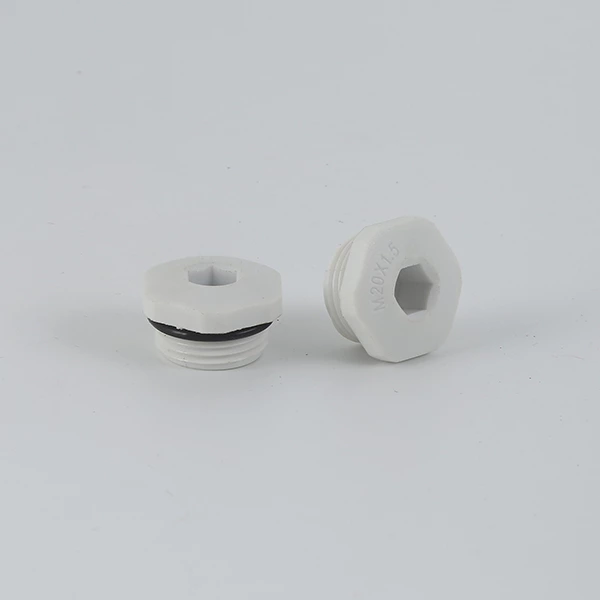What Is The Difference Between Plastic Waterproof Connectors And Ordinary Connectors?
As an important connector for connecting cables, wires, and wires, the connector plays an important role in the power, communication, engineering and other industries. However, in certain specific environments, Nylon Cable Gland is needed to protect the connection from moisture and humidity. Although this connector and ordinary connector are both connectors, there are many differences between the two. Let's introduce the difference between the two.
1. Difference in structure
Plastic connectors with waterproof function usually have special structural designs, including sealing rings, waterproof threads, waterproof glue, etc. These designs can effectively prevent moisture from penetrating into the connection.
The structure of ordinary connectors is relatively simple, without special waterproof design, and the connection is easily damaged by moisture and humidity, which affects the stability and service life of the connector.
What is the difference between plastic waterproof connectors and ordinary connectors?
2. Difference in materials
Plastic waterproof connectors are usually made of high-quality waterproof plastic materials, such as PA66, PVC, PP, etc. These materials have excellent weather resistance, corrosion resistance and water resistance, and can effectively isolate moisture and humidity to prevent corrosion and short circuit.
Ordinary connectors are mostly made of general plastic materials, such as PVC, ABS, etc., which have weak waterproof properties and are easily affected by moisture and corrosion. Therefore, special attention should be paid to waterproof measures when used in humid or water-rich environments.
3. Difference in waterproof performance
The design and materials of plastic connectors with waterproof functions make them have excellent waterproof performance, and they can operate stably in harsh environments such as humidity and rain, preventing cables and wires from being damp, corroded and short-circuited.
Ordinary connectors have weak waterproof properties and are easily damaged by moisture and humidity. When using them, special attention should be paid to waterproof measures to avoid failures caused by moisture infiltration.
4. Difference in application scope
Plastic connectors with waterproof functions are suitable for outdoor projects, underground wiring, underwater applications and other occasions that require special waterproof protection, such as street lamp wiring, park lighting, underwater photography, etc.
Ordinary connectors are suitable for connections in indoor or dry environments, such as household wire connections, electronic equipment connections, etc.
Plastic waterproof connector
5. Comparison of advantages and disadvantages
Advantages of plastic waterproof connector:
High-quality waterproof materials and special design ensure excellent waterproof performance; can work stably in harsh environments and provide reliable connection protection; suitable for special occasions such as outdoor projects and underwater applications.
Disadvantages of plastic connector with waterproof function:
Compared with ordinary connectors, the cost is higher; due to the special structural design, the volume may be larger.
Advantages of ordinary connectors:
Suitable for indoor and dry environments, low cost; simple structure and easy to install.
Disadvantages of ordinary connectors:
Weak waterproof performance, not suitable for humid or water-rich environments; not suitable for special occasions such as outdoor projects and underwater applications.
There are many differences between plastic waterproof connectors and ordinary connectors, especially in different application scenarios, they have different advantages and disadvantages. No matter which connector is selected, it should meet specific needs and application scenarios, and cannot be selected at will.

 English
English اللغة العربية
اللغة العربية Español
Español Français
Français Português
Português Русский
Русский